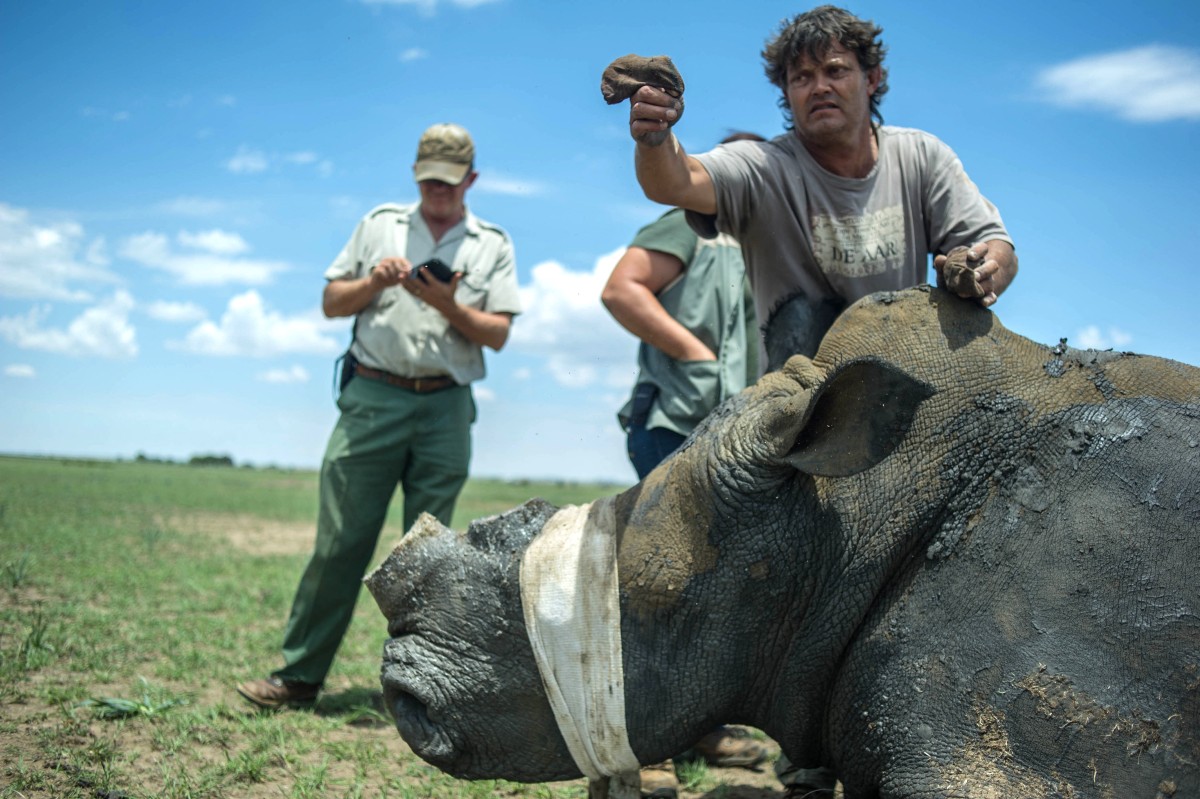Johannesburg, South Africa — South African police said they arrested Tuesday the former owner of the world’s largest rhino conservation farm on charges of smuggling the horns of the endangered animals.
John Hume was arrested with five other people following a “complex investigation into transnational trafficking of rhino horns” that began in 2017, the police’s specialized Hawks unit said.
Trading in rhino horns is legal in South Africa among citizens however local laws do not allow for their export due to an international ban.
Hume, in his mid 80s, owned the largest rhino farm in the world until 2023 when it was bought by the African Parks NGO.
The 7,800-hectare (19,270-acre) “Platinum Rhino” site in the North West province is home to around 2,000 animals, 15 percent of the world’s remaining wild population of southern white rhino.
Investigators said they had discovered allegations of fraud involving government officials who issued permits for about 964 rhino horns to be sold locally but which were instead shipped to illegal markets in Southeast Asia.
Hume and the five others appeared in a magistrate’s court in the capital Pretoria and were granted bail, Hawks spokesman Christopher Singo told AFP.
Zimbabwe-born Hume sparked controversy in 2017 by organizing a three-day online auction of horns he had amassed by sawing off them off in order to prevent their killing by poachers, though the sale attracted fewer buyers than anticipated.
Once abundant across sub-Saharan Africa, rhino numbers fell dramatically due to hunting by European colonizers and large-scale poaching, with their horns highly sought after on black markets, particularly in Asia, where the price by weight rivals that of gold and cocaine.
Alongside ivory, the horns are coveted as status symbols or used in traditional medicine for their supposed aphrodisiac properties.








